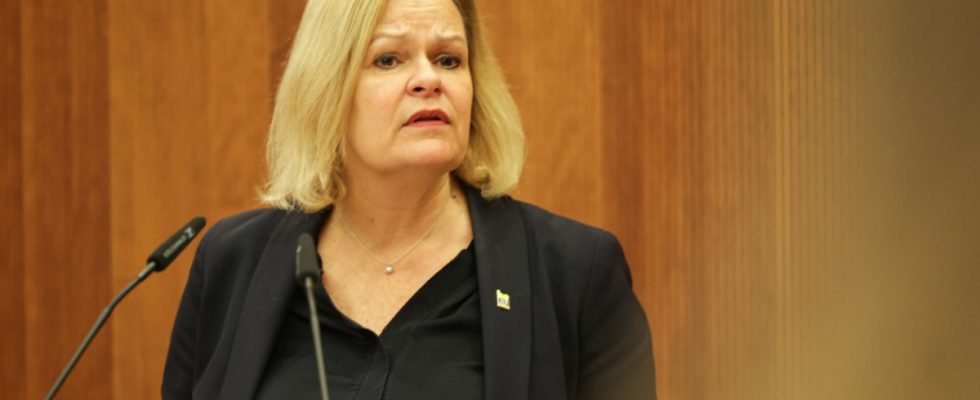The Chancellor was full of praise on November 7th – for himself and his interlocutors. After 17 hours, the federal and state governments had just agreed to tighten migration policy. He believes “that this is a very historic moment,” said Olaf Scholz (SPD) at the night’s appearance after the Prime Minister’s Conference in the Chancellery. Anyone who listened closely could already sense doubts among Scholz’s guests. Repatriations, payment cards: All the individual measures are “very granular,” said Hesse’s Prime Minister Boris Rhein (CDU).
The next showdown will take place this Wednesday. This time, Rhine invited people to its own state representation in Berlin, where the states first discussed with each other and then with the Chancellor. Scholz is scheduled to join the conference in the afternoon. This time, however, his meeting with the prime ministers is only scheduled for two hours. Whether that is enough is quite questionable. Only four months after the “historic” agreement, the Union-led states in particular are once again increasing public pressure on the federal government to quickly tighten asylum policy even further.
Markus Söder is calling for “a real change of direction now”
Bavaria’s Prime Minister Markus Söder (CSU) called for “a real change of direction immediately” on Sunday. Asylum seekers should only receive full social benefits after at least five years instead of three. Anyone who flees from the war-torn Ukraine to Germany and arrives should “not receive any citizen’s benefit in the future, but only asylum benefits.” There is also a need for accelerated returns and an “integration limit” that makes it clear “up to what level” integration can be afforded. Otherwise there would be a risk of parallel societies.
Hesse’s Prime Minister Rhein warned in the Picture on Sunday Clarity as to when further repatriation agreements will be concluded. “We have to make every effort to limit irregular migration,” he said.
Federal Interior Minister Nancy Faeser (SPD), who had just returned from her trip to South America, urged the countries to first use the opportunities created. “This Prime Minister’s Conference is important in order to put into practice at the federal, state and local levels the new foundations we have created to control and limit migration,” said Faeser South German newspaper. The legislative package with “restrictive regulations for more and faster returns” has already been passed. “The countries responsible for returns can now use these regulations.” They would receive every support from the federal police, said Faeser.
1,160 additional staff at the Federal Office for Migration and Refugees
For Faeser, the fact that the countries themselves could become more active also applies to the expansion of digitalization and administration. “With 1,160 additional staff at the Federal Office for Migration and Refugees and an additional 300 million euros for the digitalization and acceleration of asylum procedures, we are showing that we are moving faster,” said the SPD politician. According to its own information, the Federal Office currently has around 8,000 positions. The additional staff is intended to shorten the procedures, which are often far too long. Faeser also demands more speed from others. “This has to happen at all levels, including in the immigration authorities of the federal states.”
Meanwhile, there is a growing lack of understanding in the federal government about the constantly new demands of the Union and the Union-led federal states. It is said that the situation has calmed down significantly. Irregular migration in particular is declining. In winter, because of the difficult conditions, fewer and fewer people take the dangerous escape route, for example across the Mediterranean.
However, it is clear in advance that states and municipalities cannot expect any further aid at the meeting that would put a burden on the federal government. It was said that there was simply no money available for this.

